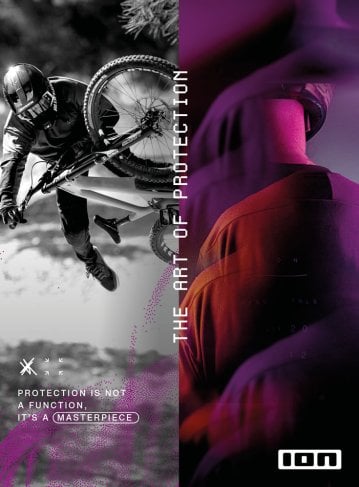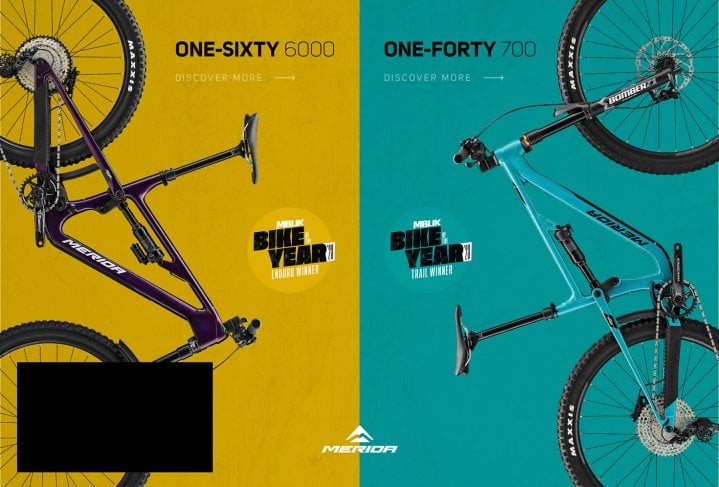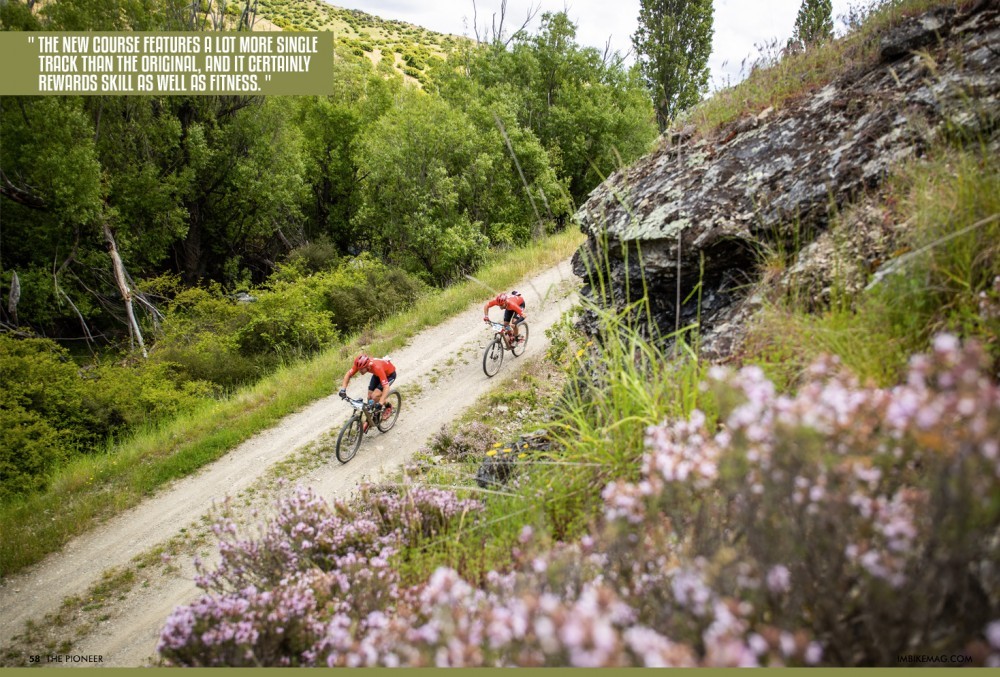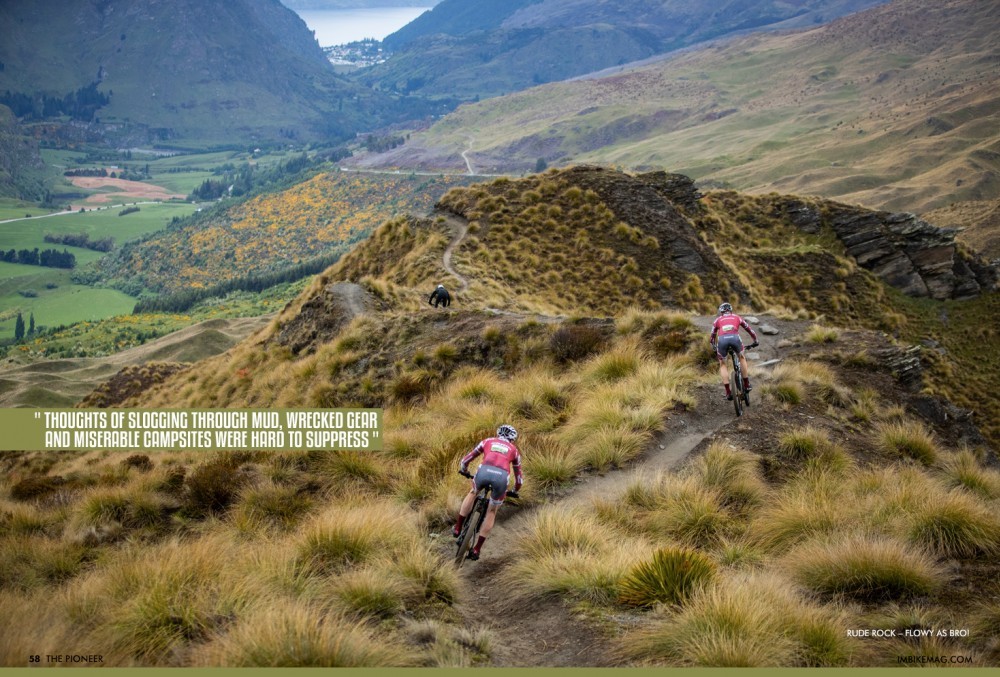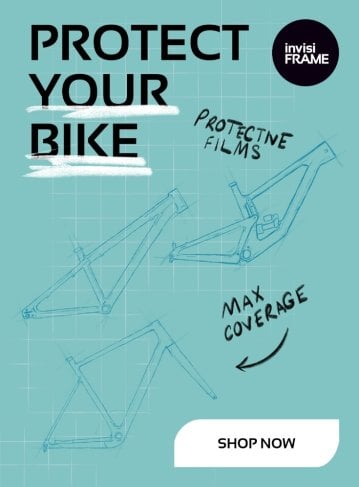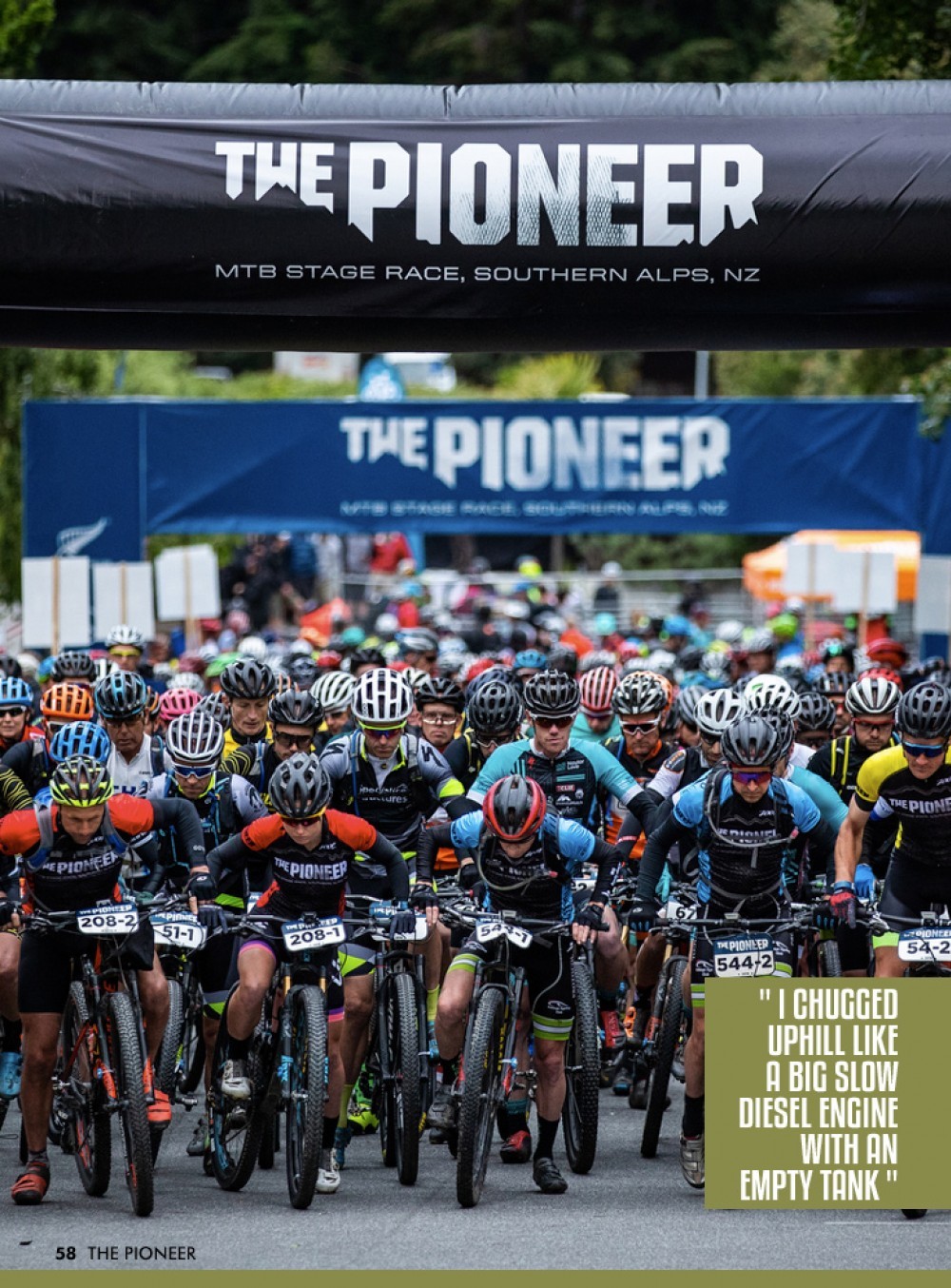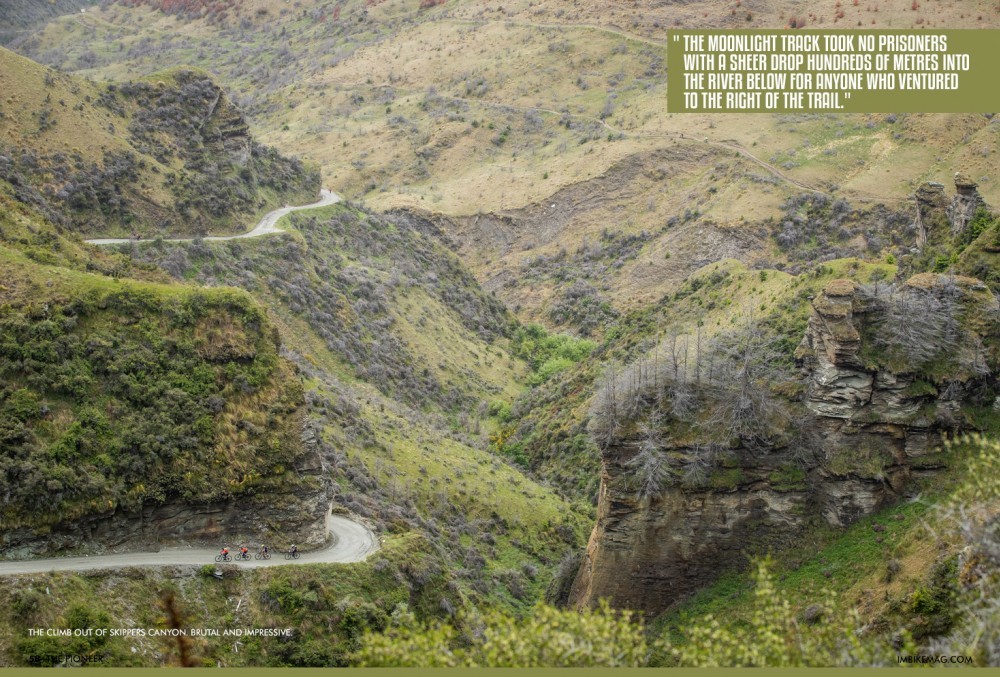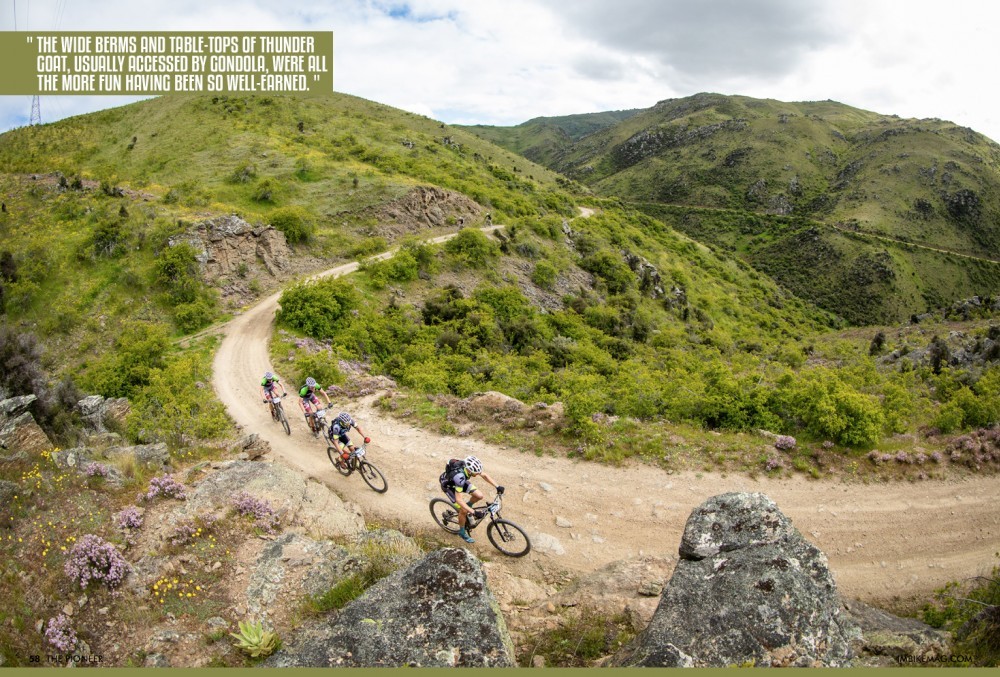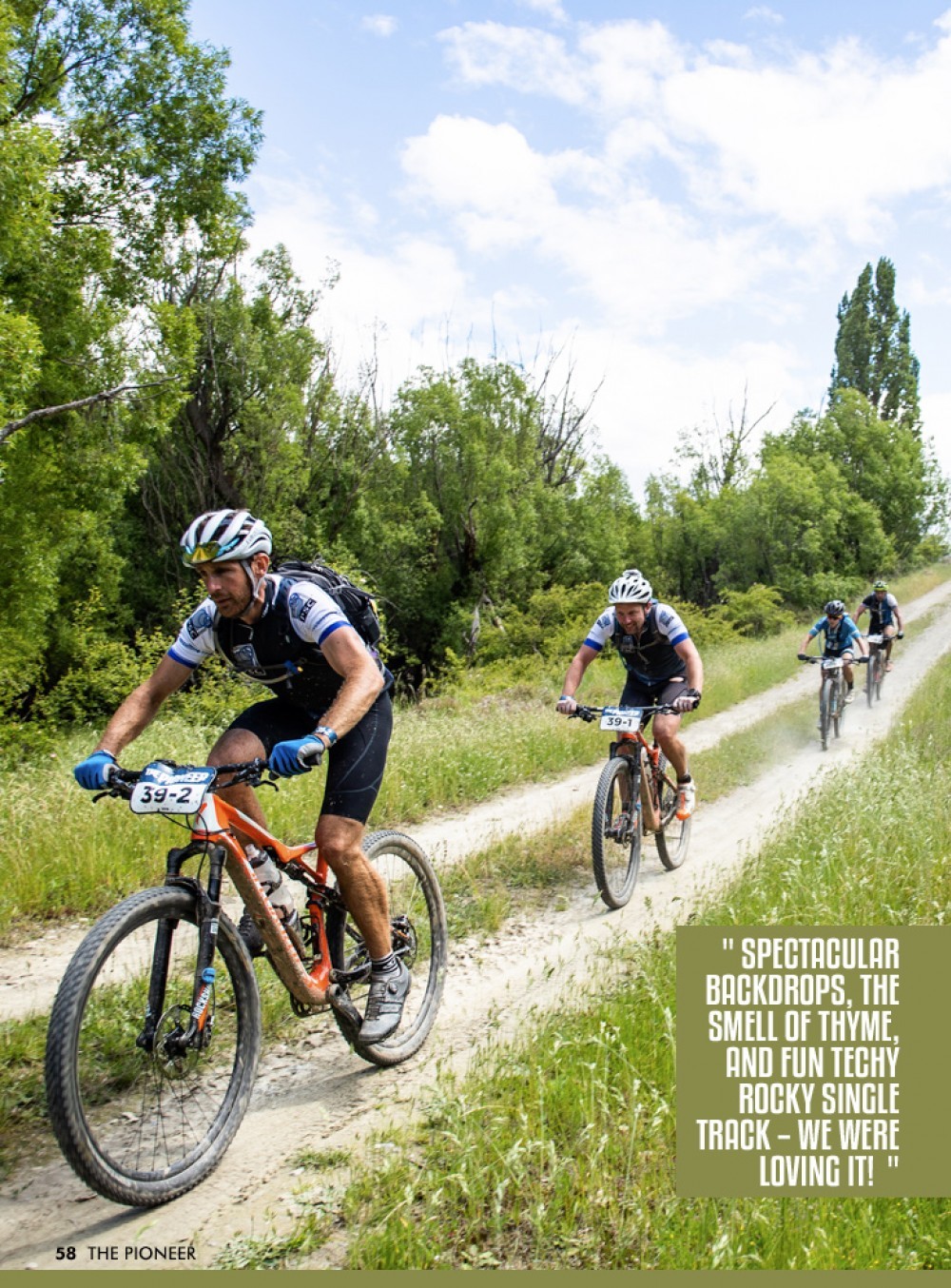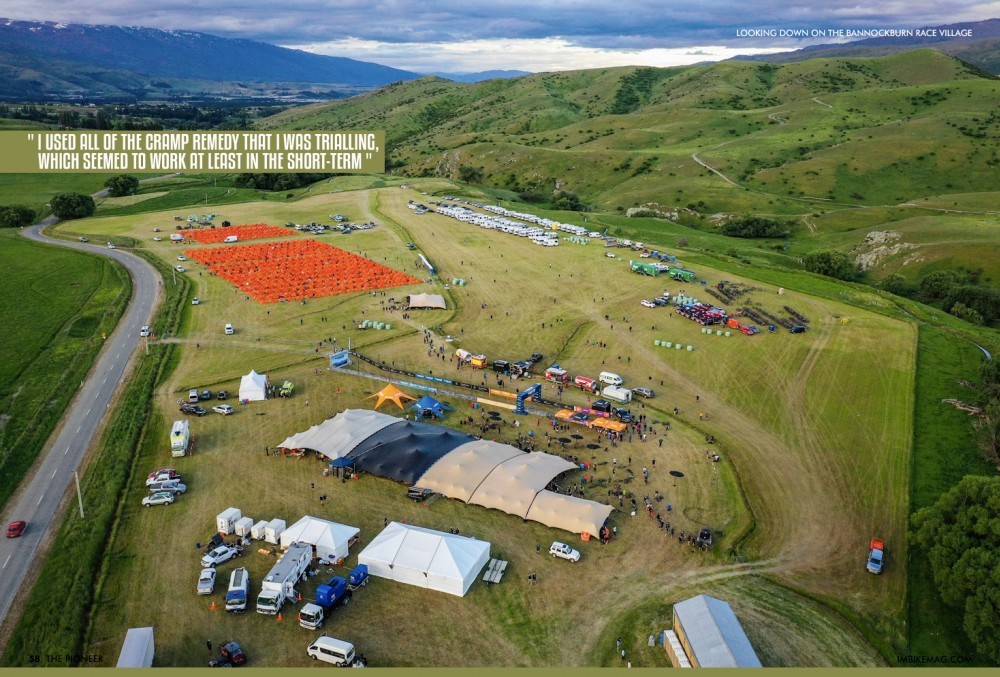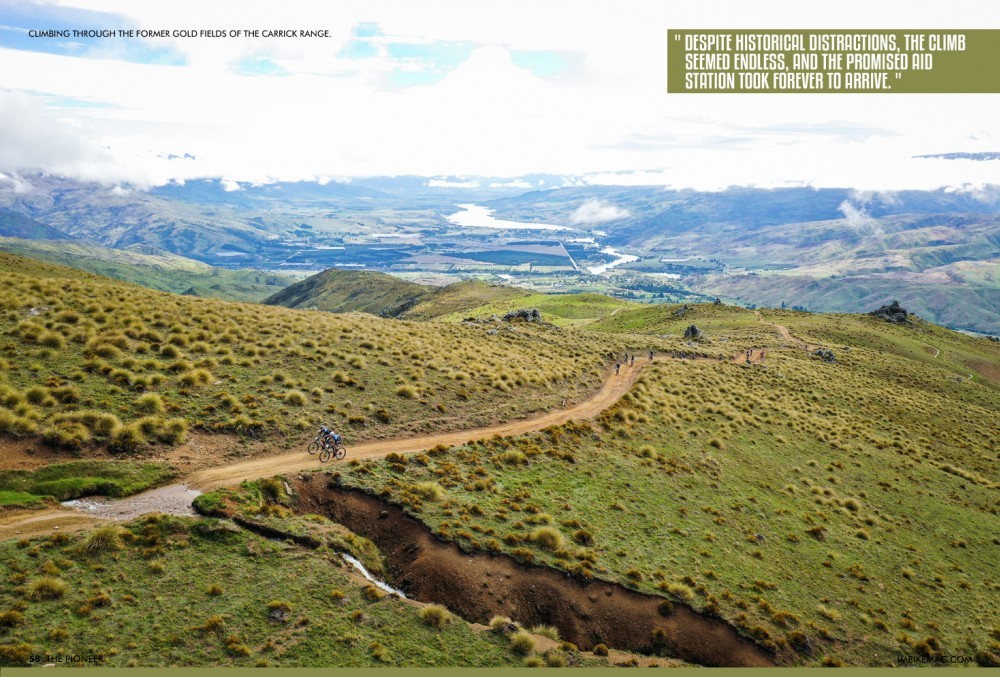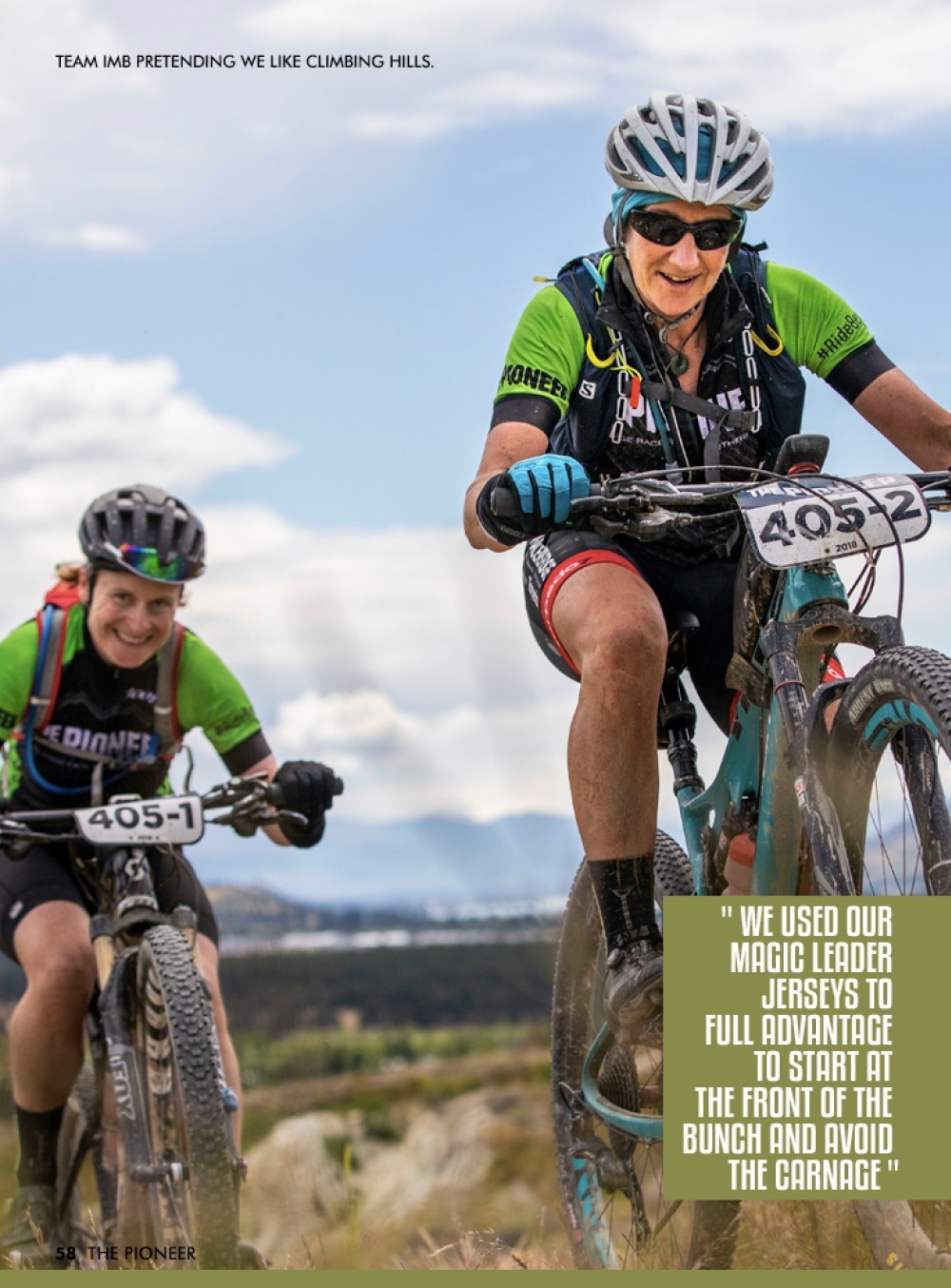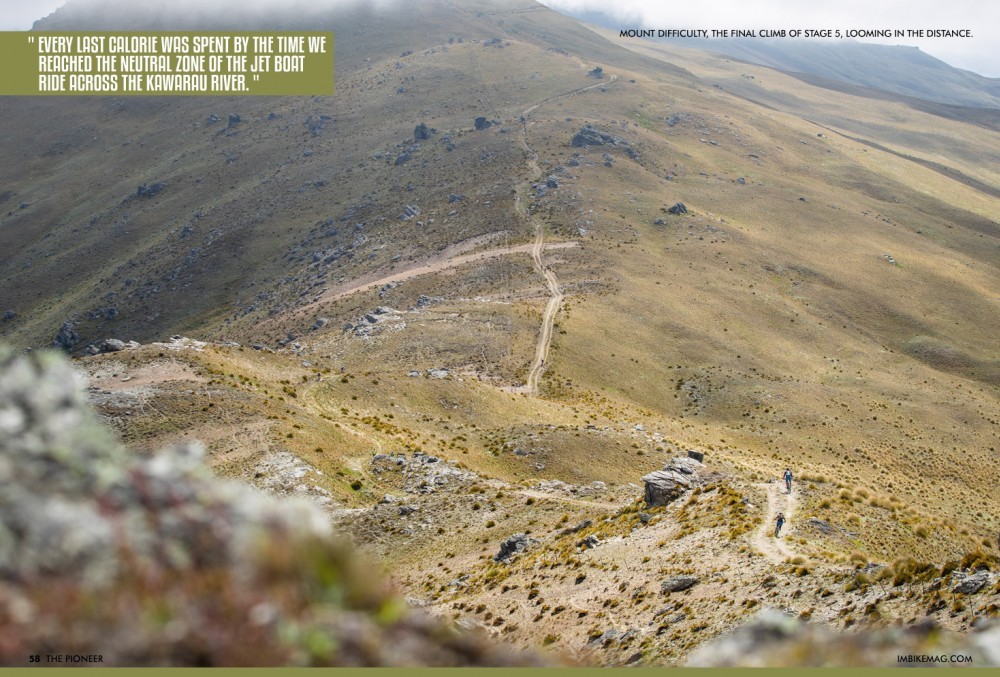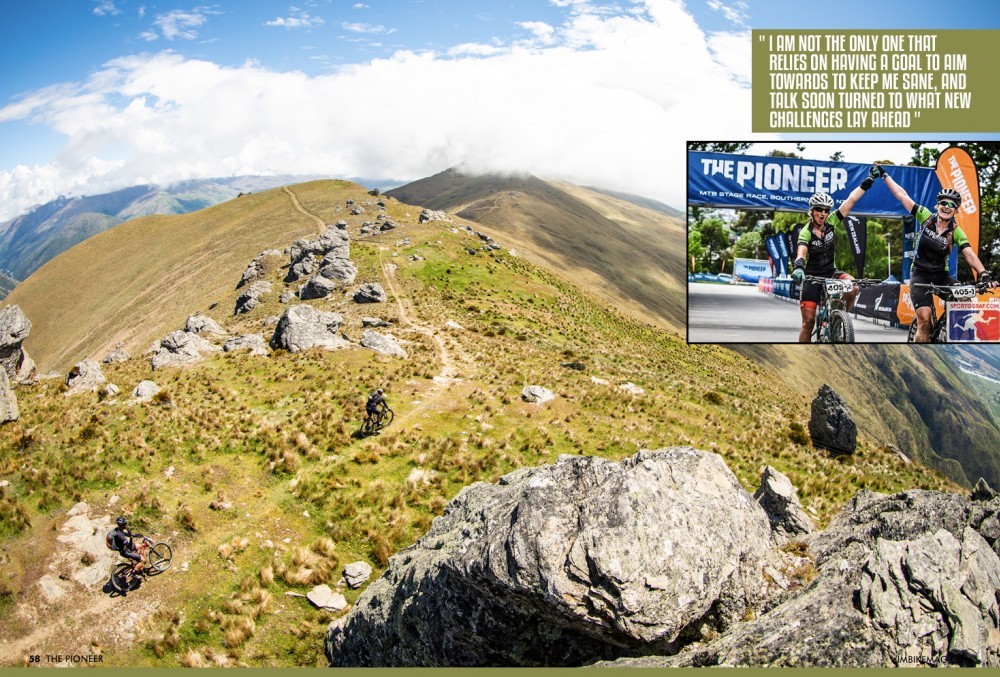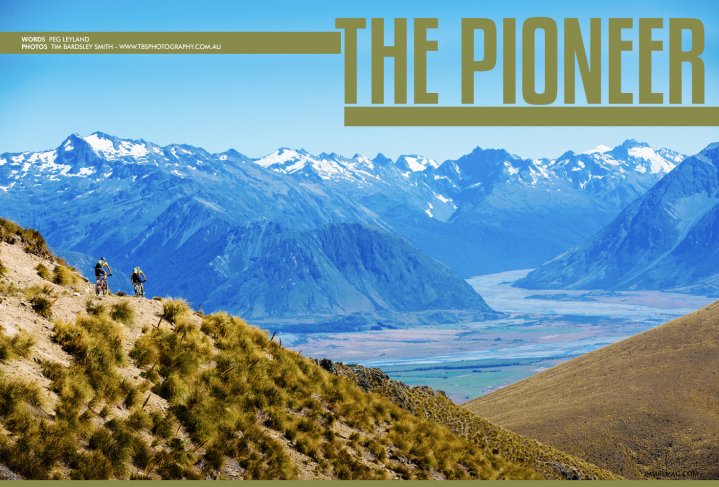
The Pioneer
Issue 58 / Fri 19th Apr, 2019
Rapidly gaining a reputation, the Pioneer is one of the hardest and best long distance mountain bike races in the world. Combining awesome trails with lung busting ascents, this is race where skill and fitness collide.
Peg Leyland and Kath Kelly take on the daunting XC race down under known as The Pioneer a hugely gruelling six-day stage race that covers 424km with a mere 15,124m of climbing!
In terms of tempting mountain bikers to visit, New Zealand really has its bases covered. From the single track mecca of Rotorua (not to mention Nelson, Queenstown, Wellington, Christchurch…) to the great rides dotted all over the place; the Tour Aotearoa bike-packing route from top to bottom springs to mind, not to mention Crankworx – what more could you want? Well, the mountain bikers’ smorgasbord at the bottom of the globe now includes a cross country stage race to rival the best in the world. The Pioneer takes place in the magnificent Southern Alps and covers 424km and a massive 15,124m of climbing over 6 days.
Kath Kelly and I teamed up to race in the masters' women’s category as Team IMB. We both raced the first Pioneer in 2016 and were tempted back by the new course. The original started with a prologue in Christchurch, followed by a point to point route from Geraldine to Queenstown. The logistics have been simplified, and riders now start and finish in Queenstown, and there are just two race villages in Alexandra and Bannockburn. The new course features a lot more single track than the original, and it certainly rewards skill as well as fitness.
In the lead up to the race we spent a bit of time in Central Otago, and there was still a worrying amount of snow on the tops. In September, at the same altitude as the highest points on the course, we were able to ride over the top of a 5-bar gate submerged in snow. A week before the race, the Queenstown long-range weather forecast showed a full-house of rain icons for the first 4 days of the event. Thoughts of slogging through mud, wrecked gear and miserable campsites were hard to suppress, and an impending sense of doom gathered, reinforced by images appearing on social media feeds of Coronet Peak base station, the start of the prologue, with a foot of snow on the picnic tables. However, as Kath likes to point out, in Central even when it rains it shines. As Prologue day dawned, most of the snow had melted, and things weren’t nearly as bad as they might have been, though the start line was definitely inside a cloud. Snow damage to the upper tracks meant that the course was modified, but the new course retained similar stats to the original with 21km and nearly 1000m climbing.
A downhill start on the famously flowy Rude Rock track took riders out of the clouds and swooping along the ridgeline. The challenge of negotiating the mudslides on Skippers Pack Track was increased by picking our way around struggling roadies*. We made it unscathed, if mud-coated, to the beautiful climb out of Skippers Canyon. Time for the lungs to recover on Zoot Track, before the climb back to the Coronet Peak base station.
*For the purposes of this article, “roadies” refers to anyone who is faster than us on non-technical sections, particularly climbing, and slower than us on technical sections, particularly descending. I hope it is safe to mention this in the present company!
I wasn’t feeling 100%, with a niggling sore throat and a flu-ey feeling. Despite preloading on anti-inflammatories, the legs just didn’t have much for the climbs, and I chugged uphill like a big slow diesel engine with an empty tank. Inevitably with pairs racing, there are days and even parts of days, when one person feels good and the other one struggles. Managing that discrepancy is crucial to success in this race format where teammates must stay within 2 minutes of each other.
Suffice to say, we discovered that we had plenty more to learn about teamwork by the end of the prologue! Racing with your life partner has numerous benefits, especially the adventures we have had being able to train together. On the downside, it is too easy to tell your partner where to go when the going gets tough. Anyway, after a somewhat rocky start, we managed to sort ourselves out, and made it to the start line for Stage 1 on speaking terms!
After the prologue, we were the 5th placed female team, 1st masters women, and had earned ourselves a place in the second start wave.
Trying to get a good night’s sleep before the first “proper” stage was thwarted when I woke from a gear-paranoia nightmare at 1am, worried that I had forgotten to change my everyday Ardent tyres to Ardent Race tyres and therefore wouldn’t be able to keep up on the fast Queenstown trail bunch ride that awaited us the next morning. Kath managed to settle me down with a plan to get them changed the following afternoon, though in the light of day my paranoia (and my sore throat) had disappeared, and I took comfort in the decreased likelihood of a side-wall slash while I was hooning down the rocky descents.
Stage 1 was a 69km loop starting and finishing in Queenstown. After a fast (though not so fast that my Ardents were a burden) start on the Queenstown trails, the Moonlight Track took no prisoners with a sheer drop hundreds of metres into the river below for anyone who ventured to the right of the trail. Legend has it that one rider took a tumble and lost his bike, which had to be retrieved by abseilers. A long but lucky walk home for him!
In typical Pioneer style, the backdrops were impressive enough to distract from the climbs. We circumnavigated Queenstown Hill and Ben Lomond, passing along the shores of Moke Lake and Lake Dispute (still managing to stay friends), to be rewarded with a final helping of single track. The wide berms and table-tops of Thunder Goat, usually accessed by gondola, were all the more fun having been so well-earned.
After the morning’s racing, riders, bikes and enormous kit bags were transported to the race village in Alexandra. Being part-local, we used our own transport and stayed with friends instead of risking a deflated airbed. Some might call this cheating, but troubled consciences didn’t seem to interrupt our sleep.
After a slight hiccup which found the Masters Women’s category AWOL at the Prologue prize-giving, the organisers found out that hell hath no fury like 40+ women scorned, and if they were going to advertise a master's women’s category, then they had better have one. Our division was reinstated, and we earned a pair of leaders’ jerseys, simplifying kit decisions for the following morning.
Stage 2 was the Queen Stage, being the longest in distance at 101km, though later stages were anticipated to be tougher in terms of climbing. We woke to a perfect Central Otago day and slapped on sunscreen under our arm warmers. The course started on the world-famous Otago Rail Trail, the perfect warm-up for a loop of rocky Alexandra single track, allowing us to pass some roadies (at least until the time trial up the Roxburgh Gorge). We gained ground again as the tracks became more technical on Flat Top Hill, and Kath tried to coach a rider down a steep rocky chute until her patience ran out, “It’s totally rideable, heels down…ok, get out of the way now!”. Spectacular backdrops, the smell of thyme, and fun techy rocky single track – we were loving it!
We kept up a steady pace for the first half of the stage and found ourselves third women’s team. Seventy kilometres took us to the bottom of a 7km climb with a very steep section at the top. As we started climbing, we could see our good friends Erin Greene and Hannah Miller (Team Madison NZ, third-placed open women) nipping at our heels and so the pressure was on to try and beat them to the finish line. We just managed to hold them off through the climb, a fun descent down the Clyde enduro track, a time trial along the road and rail trail and more single track to finish. In the process, I used all of the cramp remedy that I was trialling, which seemed to work at least in the short-term, though the smell convinced me that is a very expensive way to buy vinegar. Next time, I might grab some sachets from McDonald’s.
Stage 3, was Hump Day taking us over halfway through the race. The course had been modified due to an excess of water in the Fraser dam, and we started with a 12km warm up along the Clyde River Trail back to the bottom of the descent of the previous day, where we were directed up the adjacent 4WD track. One of the signs of encouragement on the side of the track had an inflated full-arm plastic glove bobbing above it. We had no doubt this one was for us, a horse vet and an artificial insemination technician!
We continued over the Cairnmuir Range towards Bannockburn old-school cross-country style with big grunty climbs on gravel and farm tracks. In one very steep rough section that had been “built” to connect two farm tracks, one of Kath’s strengths as a teammate became clear. She is afflicted by “queue blindness” which means she can walk straight to the front of a queue utterly oblivious to its existence, totally incomprehensible to my English sensibilities. This gained us a few places when we arrived at a traffic jam of people walking, and somehow Kath managed to skirt past them all, and I just had to tuck in behind, mindful of the 2-minute rule and muttering embarrassed apologies like a true Pom.
The relief of being over halfway through the race was tempered by the expectation that Stage 4 was likely to be the hardest day with 3563m of climbing in 70km. An atmosphere of apprehension pervaded the prize-giving that night, and riders were even more keen than usual to get a nice early night.
The following morning we were relieved that the weather didn’t warrant mandatory extra gear, less to carry up the enormous number of metres we were expecting to climb. The bunch start was a lot more subdued than normal, people seemed to be trying not to burn matches as we set off back the way we had come the previous day for the first part of the stage, experiencing yesterday’s descents as climbs and vice versa.
After 25kms, we reached the bottom of the Carricktown climb, from 200m above sea level to over 1200m, a solid hour and a half climbing for us. At the peak of the gold rush in the 1860s, there were dozens of mines in the Carrick Range. A fortuitous look back towards the valley revealed a huge waterwheel that had powered the stamper battery to crush quartz back in the gold rush days. Despite historical distractions, the climb seemed endless, and the promised aid station took forever to arrive.
Although the profile stickers on our handlebars still showed another major climb up Mount Difficulty, it was gradually becoming apparent that there was a mismatch between the total ascent on our Garmins and the advertised elevation gain for the stage. We couldn’t believe our luck and kept looking for the missing climb as we shot down a steep grassy descent in a fraction of the time it had taken to get up there, brake pads smoking. The final elevation gain for the day was about 1000m less than anticipated, but strangely, no-one seemed to be complaining, it was as if mentioning the discrepancy might mean we would be sent back out to correct it.
The final day kicked off with a short downhill road section which funnelled into a singletrack pinch, a recipe for a pile up if ever there was one! We used our magic Leader Jerseys to full advantage to start at the front of the bunch and avoid the carnage. The Kawarau River Track was fun while it lasted, but we soon found ourselves on the slopes of Mount Michael, the biggest climb of the race with over a kilometre of vertical gain in 12 kilometres. It was like climbing into the heavens as we rode through the clouds to the misty tor-scattered tussock landscape of the tops.
The atmosphere was surreal (or I was hypoglycaemic), and it felt almost as if we were looking down on the snow-capped Remarkables in the distance. After traversing a few bogs, and gaining on some roadies in the process, the arms got a good workout on the sink-hole riddled descent high above the Roaring Meg River. At times it felt as though the course had been designed by walking along the Central Otago Pinot Noir shelf at the local supermarket.
Another serving of punchy pinch climbs made sure that every last calorie was spent by the time we reached the neutral zone of the jet boat ride across the Kawarau River. For some reason, I had anticipated a longer boat trip and had just settled myself down for a mid-ride siesta when we pulled up at the opposite bank. We scrambled up it and onto the Queenstown trail, now definitely on the home straight.
The clouds had well and truly burnt off, and we had run out of water, having failed to do the smart thing and fill up at the river. We worked with one of the mixed teams and made it to the final aid station to replenish our fluids, fuel and senses of humour enough to keep the legs turning for the last few kilometres back along the trail we had ridden at the start of Stage 1. We kept ticking past ever more familiar landmarks until we found ourselves in the finishing chute, joining hands to cross the line.
We mingled around the finish for a while, the relief and sense of achievement mixed with a little disappointment that it was all over, and the dawning feeling that all those things that I had been putting off until “after The Pioneer” would have to be dealt with soon. Judging by the post-race conversation, I am not the only one that relies on having a goal to aim towards to keep me sane, and talk soon turned to what new challenges lay ahead.
If you are looking for your next big goal, The Pioneer could well be it: seriously tough, enough challenging technical riding to keep things interesting, a well-run professional event, all set within the massive and impressive landscapes of Otago. You could do worse!
Videos
By Peg Leyland

